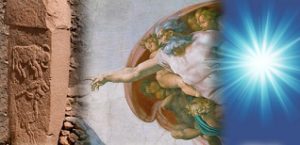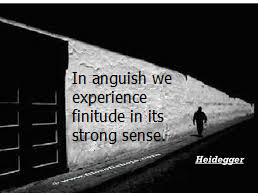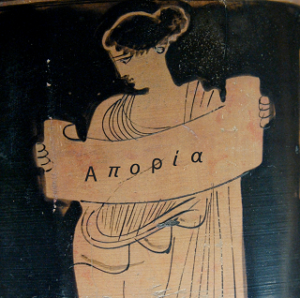
Arquivo para a ‘Noosfera’ Categoria
The reduction of the divine to human environment
It is possible to deny the existence of God, the argument of the evidence is naive, being neither logical as some modern rationalists wanted, nor human as some German idealists wanted and nor ontological as presented by Saint Anselm.
argument of the evidence is naive, being neither logical as some modern rationalists wanted, nor human as some German idealists wanted and nor ontological as presented by Saint Anselm.
There is a truth that comes from Socrates that says that it is not with men, but among men, this means that it is both ontological and complex at the same time, and one can not deny the historical existence of Jesus, whether by his historical birth at a time when sense was obligatory, for this was born in Bethlehem, and the record of his death and crucifixion which is told by historians of the time, including Josephus and by Jewish historiography.
But what Nietzsche, born in a family of Lutheran religious has seen beyond his time, is a philosophical and historical evidence of the death of God, through his human epiphany through the historical figure of Jesus, at least to Christianity, while God can be thought of innumerable eschatologies present in almost every culture so as not to be exhaustive, for even the so-called barbarian peoples had some form of divinity.
But the cry of Nietzsche’s madman is the realization of the construction of idealist and positivist philosophy that he wished to take as a single discourse on reality, Thomas Aquinas and other medievals were realistic as a philosophical current, now has a dark sunset.
From this isolationist, individualistic and separatist philosophy of the world three forms of collective heresies follow: a merely human God, a purely divine God, and a total absence of the third divine person: the Holy Spirit, for whom there is no forgiveness.
This sin is not the mere denial of God, but its concrete negation is the negation of the Other. Teilhard Chardin says about the inclusion of the Other that this is the “divine medium”, the typical mystique of our time, which can also be expressed as “where two or more are in my name” (Mt 18:20), which is a “and you who say that I am” (Mt 16:15), which follows several passages of the relationship with the World and with God.
One can say that there are two reductions: the merely human and the merely divine, but the main reduction is the ignorance of a third reduction which is that of the action of the Holy Spirit. In the reduction of the divine, Jesus in miracles almost always asked for a description or made allusion to the faith of the healed, the gifted or just the wonder of contact like the blind Bartimaeus, the prophet Ana, Simeon, the paralytics, lepers or the woman to whom he directs word.
True eschatology sees not only principle or end, but both in relation to the daily life of human life, Teilhard Chardin makes reflection in the book The divine medium (1957): “the slowly accumulated tension between Humanity and God will reach the limits fixed by the possibilities of the world, and then it will be the end … that we should expect not as a catastrophe but as a ‘surrender’ to the world to which we must collaborate with all our Christian forces without fear of the world, because their spells could no longer hurt those to whom he has become, beyond himself, the Body of him who is the One who comes.”
Like the evangelist Luke (Luke 9:20), Matthew also repeats Jesus’ question to the disciples, Mt 16:15: “But who do you say that I am?”
CHARDIN, T. O meio divino (The Divine medium: Essay of inner life). Lisbon: 1957. (in portuguese).
God did not die, we killed him.
It is a bad reading of Nietzsche’s idea that God died, what happens in the reading of “The gaia science” (Nietszche, 2017), first that speaks of science, according to which Gaia in the Greek sense refers to Mother Earth and finally , the madman “began to shout incessantly:
reading of “The gaia science” (Nietszche, 2017), first that speaks of science, according to which Gaia in the Greek sense refers to Mother Earth and finally , the madman “began to shout incessantly:
“I seek God. ” Let’s see his own text, although the translation may have imperfections: “crazy man. “They did not hear of this crazy man who lit a lantern in the morning and ran to the market, and he began to shout ceaselessly,” I’m looking for God! I seek God! “? “And as there were many of those who did not believe in God, he aroused a great laugh. So he’s lost? One of them asked. Did he lose himself as a child? Another said. Are you hiding? Is he afraid of us? Did you board a ship? You emigrated? They shouted and laughed at each other.
The madman threw himself between them and pierced them with his gaze. “Where did God go?” He shouted, “I’ll tell you! We killed them – you and me. We are all his killers! But how did we do it? How did we manage to drink the sea entirely? Who gave us the sponge to erase the horizon? What have we done to unleash the land of your sun? Where does she move now? Where do we move to? Away from all the suns? Do not we continually fall?
Back, to the sides, to the front, in all directions? Are there still ‘above’ and ‘below’? Do not we wander like that through an infinite nothingness? Do not we feel the breath of the vacuum? Has not he become colder? Does not darkness everlast? Do not we have to light lanterns in the morning? Did we not hear the noise of the gravediggers bury God? Do not we smell divine putrefaction? – the gods rot too! God is dead! God is still dead!
And we killed them! How can we console ourselves, murderers among the murderers? The strongest and most sacred the world had ever possessed bleed whole under our daggers – who will cleanse us this blood? With what water could we wash? What atoning rites, what sacred games will we have to invent? Is not the greatness of this act too great for us? Should not we ourselves become gods, to at least seem worthy of it?
There has never been a greater act – and whoever comes after us will belong, because of that act, to a story higher than the whole story until then! “At that moment he silenced the mad man, and again looked at his listeners: they too were silent looking amazed at him. “I come too soon,” he said then, “is not yet my time. This enormous event is on the way, it still walks: it has not yet reached the ears of men.
Sparkle and thunder need time, the light of the stars needs time, the acts, even after they was done, need time to be seen and heard. This act is still more distant to them than the furthest constellation – and yet they have committed! – It is also told the same day the mad man broke into several churches, and in each one intoned his Requiem aeternaum deo. Taken out and interrogated, he merely replied, “What are these churches, if not the mausoleums and tombs of God?”
In the next post, I suggest some interpretations, including a Christian one, now make yours.
NIETZSCHE, F. A gaia ciência. Aforismo 125, LeBooks, 2017. (in portuguese, ebook).
A more human biblic Mary
A 15-year-old girl realizes that she will be a mother in a difficult way to understand, despite being deeply religious, and having the courage to assume what was for her a Will of God, would certainly be shaken, as indeed it was, says the Bible reading Lk 1: 27-28:
despite being deeply religious, and having the courage to assume what was for her a Will of God, would certainly be shaken, as indeed it was, says the Bible reading Lk 1: 27-28:
“The angel, coming to her, said,” Rejoice, gracious, the Lord is with you! ”
Maria was troubled by these words, wondering what that greeting might mean.
She says she does not know (have related to) any man, so the angel explains Lk 1:35:
“The Holy Spirit will come upon you, and the power of the Most High will overshadow you. So he who is to be born will be called the Holy One, the Son of God.”
Faced with the perplexity of the adolescent, the angel gives her a key to read Lk 1:36:
“And Elizabeth, her kinswoman, shall have a son in old age; that which was said to be barren is already in its sixth month of gestation. ”
“The angel answered,” The Holy Spirit will come upon you, and the power of the Most High will overshadow you, so that he who is to be born will be called Holy, Son of God. ”
And it says here that it is used by religious in various contexts and should not be Lk 1, 37:
“For nothing is impossible with God.”
Curiously, it is almost always those who use the biblical text those who least believe that Mary was special in the eyes of God and men, but there are also those who do not see the frailty and the doubts of this young adolescent who runs the cousin’s house, just because of the angel’s reading key: “Elizabeth, her kinswoman, will have a son in old age,” and probably this instigated Mary to visit her (in the picture, the Visitation of Raphael, 1517).
The following reading reads, that days later, Mary was “hurriedly into the mountainous lands of Judea,” the village where Elizabeth lived, who was pregnant with John the Baptist, the forerunner of Jesus, and Zechariah her husband who had been mute to the knowledge of conception.
Now Mary had not yet sung her song, the so-called Magnificat, and it is very probable that her heart still had doubts and was still part of the initial shock. He says that as soon as Mary greeted the cousin, the child of Elizabeth (John the Baptist) jumped in her womb, and Elizabeth was “full of the Holy Spirit”, we spoke in the previous post about the role of this little understood God, the Holy Spirit.
Like the ontoanthropological relationship with Eve, there is an ontotheological relationship with Izabel, her cousin, and only then does she sing her song Lc 1, 46-48)
“And Mary said, My soul doth magnify the Lord, and my spirit rejoices in God my Savior; Because he looked upon the humility of his maidservant; For behold, from now on all generations will call me blessed, “which is a proto-gospel of Mary, from which one can draw also a relationship with the Hail Mary of the Catholics, which has biblical reference Lc 1,42.
What should we do ?
The aporia of the Greeks, the impropriety (I translated as unreasonableness)  of Heidegger, the fear and the fragility of Martha Nussbaum, may all be composed in a juice that helps to look forward with serenity and hope. Before the advent of the birth of Jesus, Christmas has this deeper symbolic meaning, we expect a “salvation” and it must be concrete.
of Heidegger, the fear and the fragility of Martha Nussbaum, may all be composed in a juice that helps to look forward with serenity and hope. Before the advent of the birth of Jesus, Christmas has this deeper symbolic meaning, we expect a “salvation” and it must be concrete.
John the Baptist preached in the desert and the crowd that followed him are in anguish, they asked him: “What should we to do? “John answered:” Whoever has two coats, give one to him who has not; and whoever has food, do the same! “(Luke 3:11).
There were also tax collectors, the corrupt ones of today who pollute the entire financial health of the state, this is the protest in France, and it seems that Teresa Mey in the United Kingdom also begins to show signs of weakness, the conservative turn shows her impotence.
What we should do, not lose solidarity, fraternity, and the spirit of the advent of Christmas help us in what must “come” and will come, but it takes strong minds and hearts.
The feeling of death, and even a certain despondency in the hearts desirous of the future may be present, but should not mean surrender or paralysis, but Aporia.
It is necessary to be open to the new, and to develop solidarity denouncing violence and social abuses, the Nobel Prize doctor Denis Mukwege who rescues victims of abuse in Congo and denounces the violence ignored by the West that happens in his parents, along with Nadia Murad activist against the sexual abuse of women, who was herself a victim of violence Denis Mukwege praised the good use of new media to denounce these facts that the major press ignores or makes them less serious than they are, so digital change, artificial intelligence, information and communication are there not to disrupt, but to help this.
The examples of Denis Mukwege and Nadia Murad serve us to overcome fear and move forward, the changes will happen.
Fear, anguish and change
The philosopher Martin Heidegger (1889-1976) invites those who live in fear, to live in impropriety, or a kind of aporia that means to think without assigning values and meaning, letting circumstances attribute it, it seems an alienation, but it is the alienation of the self.
in impropriety, or a kind of aporia that means to think without assigning values and meaning, letting circumstances attribute it, it seems an alienation, but it is the alienation of the self.
In a world that is always running, and I warn that this was already a reflection of Nietzsche and also Mario de Andrade’s Paulicéia Desvairada of the 1920s, and now the Monarchy of Fear, which is a reflection of Martha Nussbaum for the USA, but that serves to Brazil and others.
Nothing is more related to fear than Death, but it also arouses anguish, it would be to think about their relation to change, I would say none, unless the hypothesis that Heidegger throws us: impropriety, that is, we cease to attribute meaning and allow others to ascribe it, I would say that it is a resigned dialogic.
Heidegger also wrote that it is in anguish that we experience our fragility.
In it we find unexpectedly the change, where neither the anguish and the fear reach, beyond them therefore, where the hope and the “clearing” are born, lights on the forest.
So the fear exists because there is a real danger, and it means that something is changing, the anguish leads us to think about what is the change and the direction of it.
I suspect that the term impropriety used in the national translation for the word of Heidegger unangemessenheit may have another meaning, since angemessen can be translated as what is reasonable, so I would translate unreasonableness, that is, which is not in a sense as being reasonable, but that in the face of fear and anguish, they arise as having new horizons, from which changes that were previously unthinkable can emerge.
The German poet Hölderlin said that where there is fear there is salvation, it can be said nowadays in a broader way, that is, in science, in politics and because not in spirituality
Between Aporia and Aletheia
The Greek word Aporia (Ἀπορία) meant in Greek Mythology impotence, difficulty and helplessness, or even the lack of means, was rethought by the Aristotelian school as impasse, paradox, doubt, uncertainty or even contradiction, its studies are called aporetic.
or even the lack of means, was rethought by the Aristotelian school as impasse, paradox, doubt, uncertainty or even contradiction, its studies are called aporetic.
Aristotle defined it as “equality of contradictory conclusions” (Topics, 6.145.16-20).
It is important because it broke apart, albeit in a participatory way, as the logic of Being or Not Being, and there can be no contradiction, which came to be in contemporary idealism.
It is radically different from Aletheia, because it is cover-up, not contradiction and so was designated by the ancient Greeks as truth and reality, simultaneously.
Heidegger takes it back in the attempt to “unveil” the truth, it is considered an objective descriptive state, and therefore lacking a metaphysical or subjective movement.
Aporia was also used by contemporary authors, such as Derridá and Paul de Man, so in post-structuralist literary theory, is thus the very deconstructive reading of the text, which we have previously warned has nothing to do with denying the truth, but indeterminacy or undecidability .
The sense of putting them together here is precisely to seek a relationship that in contemporary theory is disconnected, being itself an aporia, the linguistic turn seems to have nothing and no connection with the ontological, so aporia and aletheia are disconnected, the Greeks little help because reading is in the past participle and not present participle.
It is curious, but it was Portugal who warned me of the fact, here is not used the gerund: someone is talking, it is saying they say, thus nothing will be, but it is being, said Priest Manuel Antunes: “mystical people, but not metaphysical” (Repensar Portugal).
While aporia is a past participle, it becomes fatalistic, undetermined as the search for truth, and aletheia while unveiling is a constant search for horizons, where there is no definitive truth, but truth in construction: being, revealing, happening.
Philosophical, political and especially religious determinism leads to various types of fundamentalism, from pure aporia to pure “truth”, there is neither dialogic nor unveiling.
Heidegger ‘s hermeneutic circle is not only a method, it is unveiling, to admit the idea that we all have a pre – concept is to unveil to the crisis of modernity, legalism and idealistic positivism gave what it gave, a no way out, but humanity itself points out ways, one already is clear: admitting that there are preconceptions is the only remedy and diagnosis capable of overcoming them.
Cultures, religions and political concepts are in shock this is aporetic, can and should enter into humanistic dialogic, ie unveiling and pursuit of horizons.
Digital´s aporetic and maieutic
In the time of the pre-Socratics, philosophy called the sophist had as a presupposition to create discourses to favor the rulers and this soon led to Greek democracy to languish and a moral relativism, Socrates who lived in the century. IV a.C. proposed a method to address this which was to develop the maieutic, a method of asking which developed the logos.
create discourses to favor the rulers and this soon led to Greek democracy to languish and a moral relativism, Socrates who lived in the century. IV a.C. proposed a method to address this which was to develop the maieutic, a method of asking which developed the logos.
But the aporetic state that lived was necessary more than to ask, an interlocutor had to abandon its preconceptions and the relativism of the opinions demanded something more than just to ask, something that would make a birth in the new thought, hence the maiuêutica name that was the the art of giving birth, so it was not a matter of “creating” knowledge, but of giving birth.
There is no doubt that the digital medium became twisted of “opinions”, the doxa as the Greeks called them, but can one parturize and inquire in the digital medium? a digital maieutic is possible, the case is not just how twisted (claques in Portugal) are organized, but how they are manipulated by sophisms, now updated as”fake news”.
The sophistry exists in history, never left or will cease to exist, in digital times the problem is the viral process, but the publishing groups through newspapers and TV channels have already done this and there has always been a maieutic that opposed manipulation to the facts.
Let us return to the method of Socrates, he did not initially know any, did not make his judgments according to tradition, customs, opinions, nor had an episteme, or an elaborate method, just asked, the problem today is that the questions are and modernity has already created “organized” knowledge (in the systematic sense rather than the truth), but we can use this for a new digital maieutic, repelling wrong speeches.
I think it’s not by chance that Artificial Intelligence is evolving, but practical intelligence, phronesis coupled with techné and praxis itself (which is therefore a part of the practice) may help, so Martha Nussbaum’s speech makes a lot of sense.
Many people talk aboutmaintaining “focus” (but it may be wrong) or emotional intelligence, which, disconnected from practical wisdom (phronesis), can fall into paralysis or alienation.
All we have today is not due to the digital world, it affect its, is a means and so it is incorret to see it as the final or initial cause, not even was the industrial revolution that caused it, but the set of values and feelings built in modern society, which is nothing more than a forma of being-in-the-world, a Dasein as Heidegger writed and explained.
Digital resources seem welcome, but we still have the barrier of preconceptions, an elaborate human hermeneutics is necessary
The aporia and the desert
What happens in moments of deep crisis is to return to the safe harbor,  unfortunately the safe harbor for the masses is what they know: a strong modern state and if not the religious fundamentalism that seems to give back the roots of each people.
unfortunately the safe harbor for the masses is what they know: a strong modern state and if not the religious fundamentalism that seems to give back the roots of each people.
There are not few examples in the world, even those who refuse to rediscute the state realize that something is going very wrong: weariness of democracy or even hatred of democracy, it is not so simple, do not get tired or hate what is good , There is something wrong.
Aporia is at this moment more than emptiness, because it means to hear something that comes to mind (the Cartesian cogito that does not go beyond the ego), the alter that is to hear that which is not the Same, aporia is recognition of a fallacy, even if it is a historical step.
Sloterdijk’s diagnosis is hard, we must abandon the depths of our anthropological interpretations: all interpretations of man as “worker” or “communicator” must now be translated into the language of exercise which we have known until then as manifestations of homo faber or homo religiosus , a life of “exercises.”
Of course it is questionable, but his diagnosis has so far, the dualisms: sacred vs. aristocratic common, cognitive cultures knowledge vs. ignorance, military cultures vs. liberal cultics, and goes around now, it is as if for several systems there were only binary dual logic,. Niklas Luhmann went in the same direction and goes so far as to say that his identity is constituted, he allows his internal communication and regulates and at the same time restricts his communication with his environment (Luhmann).
What would be beyond that? The understanding of culture as a rule and not as ancestry, is in fact a new understanding of humanism or even its end some want.
Under culture they understand, from Wittgenstein to Sloterdijk, are the set of all possible behavioral forms within a given society, that is, all forms of life that pass through the sieve of the rule; rule is placed at such a high level of demand that only a life of exercise can achieve it.
So few would be able to fulfill it. Wittgenstein, Nietzsche, Heidegger, and even Foucault would all be representatives of a philosophy as a discipline, so philosophy is more than a school subject: it is engaged and characterized by a “vertical tension.”
If Brazilian conservative politics requires a school without a party, it thinks of nothing but a return to a life of exercise: moral, religious, and cultural, because it knows little or nothing about the origin of slogans such as “order and progress,” recalls the positivism of Auguste Comte from which the word “love” was withdrawn, dispensable for dictators.
The necessary aporia is the recognition of a cultural, philosophical and even religious night that the West faces, but also Buddhism and other pacifist Hinduism already show signs of “intolerance” in current cases in regions of India and Myanmar.
Only a “modern aporia” will be able to open a new horizon, old schemes are bankrupt, I am more optimistic than Sloterdijk and others, humanism has not died, there is a humanism of a new kind that must be born: of every man and of every culture, without exclusions.
As it is written in Luke 3,4: “The words of the prophet Isaiah: This is the voice of him that cries in the wilderness, ‘Prepare the way of the Lord, make his paths straight’”.
Aporia, hope and practice
What can we have beyond aporia, a paralysis in the face of the unthinkable?
We have already posed here on pronesis, practical wisdom, which together with techné and praxis forms a more elaborate form of understanding the dualistic and idealistic relation of theory and practice, but it was Martha Nussbaum who put this in new heights, despite the distrust of critical
Martha Nussbaum was the first to parade in her book The Monarchy of Fear (Nussbaum, 2018), the work that was a clear vision of fear in the USA, is now also applied to Brazil and to the growth of fundamentalisms in the world today.
The name may seem strange, but Rousseau’s line is the most lucid and less authoritarian “contractualist” democrat, where the author argues that in a monarchy the child was born to “enslave” people, but it evolves and becomes a mature human being when can see his parents as an extension of himself and come to respect them and to return the life that he received.
Starting from political theory, psychoanalysis, psychological and classical studies, the philosopher argues that some emotions are sabotaging democracy: fear, repulsion and envy, if they have not taken it seriously before, now is the time to take it at least.
It contrasts with this theory the choice of hope as a practical habit, which means putting ourselves in touch with what we a priori repel: religion, the arts, education and what seems most fundamental: the study in detail of the theories of Justice .
It is one of the paths of transdisciplinarity, but rather we must consider what is beyond common sense, because also in these areas a certain level of deepening is necessary, in addition to the authoritarian and liberal, fair and unjust social, art and fine arts, there is something beyond and it is neither inter nor multi, but trans, that is, beyond and therein is something metaphysical.
Practical hope is also a good recipe because in addition to putting some light in the current crisis of thought, culture and even religion, it puts us in motion not in the active life, but in activities that can be inserted day-to-day and change the life and the results (they incorporate pronesis and techné, although the author does not call it that), she brings to the conversation the theme of emotions, she says about herself: “she had not gone deep enough,” she said in an interview in Fronteiras do Pensamento (the Frontiers of Thought).
Martha Nussbaum, in addition to being a recognized scholar of classical culture, received in Kyoto in 2016 the Kyoto prize, the Japanese equivalent to the Nobel, which also received Karl Popper and Jürgen Habermas.
I did not read the book, but I’m writing my reading list for
Christmas and Winter
Christmas is different in Europe, the contrast between the warmth of hearts and the frost on the streets gives a very special recollection climate, unlike tropical countries.
frost on the streets gives a very special recollection climate, unlike tropical countries.
I thought it was more sad, but it is not, there are hearts attentive to the lights, the buzz of the streets, even if someone criticizes the consumerism or the exaggeration, people want to greet each other, they want to do something almost the same as in Brazil, I feel here even warmer.
We had a lunch with colleagues from my work environment, and it was really a party, they put up the famous Christmas songs, not the conventional ones, but those of children like “I left my shoe”, is a good mood, at least in Portugal.
I went downtown, a beautiful Christmas tree on one side of Praça do Comercio (center place of Lisbon), the conversation on the streets is curious, even Islamist or evangelical, maybe it was only in Portugal, but it warmed my heart.
I will not be here on Christmas Eve, nor at the end of the year, but I gained a more optimistic view.
It is difficult to imagine that among so many religious women, politics are the result of a return to national and xenophobic feelings, there is still room for warmth, love and friendship.
In my corner I celebrated, sure that it will be a little more difficult in Brazil, but not impossible, you have to try to keep ties and avoid making more bombs than the ones there.
Advent time, which means something will come, even if it is contrary to what we want, we must keep hope, the spirit attentive to injustices and not do with others, what we do not want them to do to us.
Even if Christmas is cold by the natural climate or the political climate, let’s keep the heat
The first essential step is to have the right diagnosis, so many self-help books, good nutrition, recipes of happiness that do not seem to move people from anxiety, fear, anguish, and with increasingly serious syndromes like Burnout.
Diagnosis is a society that has pushed us to a job, not only functional but necessary, but with additional burdens of political, social, religious and even family activism as being “necessary” to live well.
There is no room for contemplation, even for rest, for leisure activities, because in them we also put more activism, endless queues of cars for beaches, fields or other retreats that are nothing more than to lead the agitation in the suitcase.
We do not know how to read the signs of the times, and with this activism only increases the emptiness and the sense of concern, the diagnosis already pointed out by Nietzsche has a recipe in Kierkegaard to return to being what we are, and from there to change and evolution with serenity .
The apocalyptic will say signs of the times, the pragmatics will say humanity is thus, always was and always will be, incapacity to read the times, non-fundamentalist reading about the end times “Take care that your hearts are not insensitive because of gluttony, of drunkenness and worries of life, and that this day does not suddenly fall upon you “(Lk 21:35), can serve for our times well before the end of the world that will be delayed.

